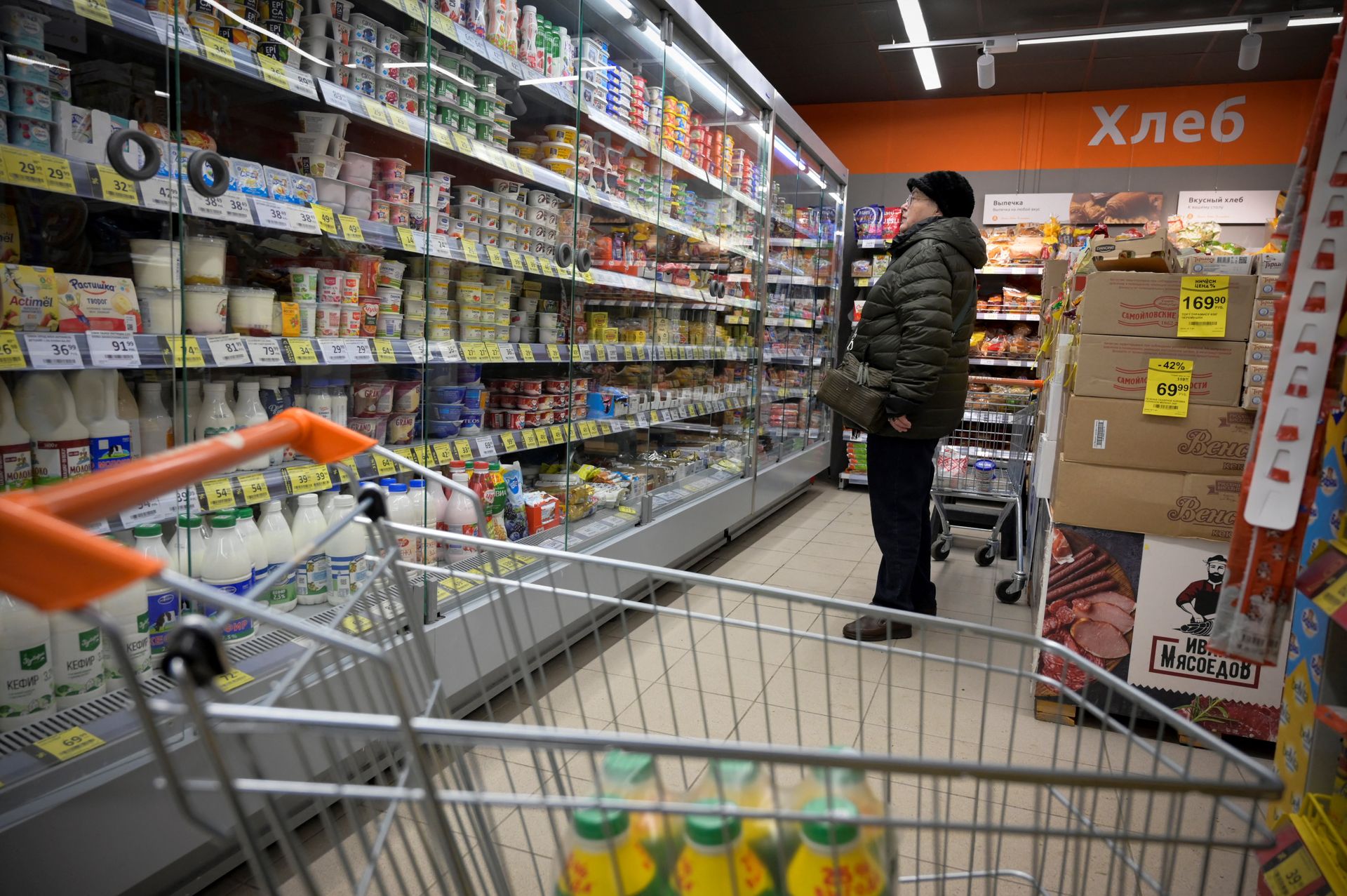As inflation bites, Russia cracks down on food producers amid public concern

Russian prosecutors investigated more than 400 cases of rising consumer prices in the first half of 2025 and issued warnings to over 5,000 companies, Russian Prosecutor General Igor Krasnov said on Sept. 8, according to the pro-government outlet RBC.
His remarks come as inflation remains one of the biggest concerns for Russian households. A June survey by the independent Levada Center found 58% of Russians named rising prices as their top worry, far outpacing concerns over the war in Ukraine.
Krasnov said prosecutors intervened in cases of "economically unjustified" increases in wholesale prices for basic goods such as raw milk and butter, warning 12 major agricultural enterprises of consequences.
"Potatoes, eggs, milk, and butter are becoming more expensive... But some unscrupulous producers, suppliers, or sellers are allowing themselves to profit in this way," Krasnov said.
"Here's a concrete example: the recent record rise in potato prices. A whole range of measures, including the involvement of prosecutors, helped stabilize prices."
Russia's annual inflation slowed to 8.8% in July, compared to 9.4% in June, but remains well above the Central Bank's 4–5% target. Food and services are driving the surge.
Amid high inflation, the Russian government was preparing to cap prices on key staples — including vegetables, dairy, and poultry — starting in March 2026.
The Russian agriculture and trade ministries are currently drafting amendments, pro-Kremlin media outlet Kommersant reported in August.
"According to eyewitness accounts, the price hikes are very significant," Maria Snegovaya, Senior Fellow at the Center for Strategic and International Studies (CSIS), told the Kyiv Independent in August.
"This issue is highly sensitive for (Russian President Vladimir) Putin's regime," Snegovaya said. "It undermines their ability to keep pretending that 'everything is fine and nothing is happening.'"
Analysts warn that such steps signal a deeper shift toward a command economy.
"Russia is now shifting toward a fully planned, command-style system, with all its usual flaws — constant food shortages, long queues, and everything else that comes with it," Russian-born economist Igor Lipsits told the Kyiv Independent in August.
The clampdown on prices underscores growing economic strain as record defense spending crowds out civilian sectors, leaving Russian consumers squeezed between high costs.











